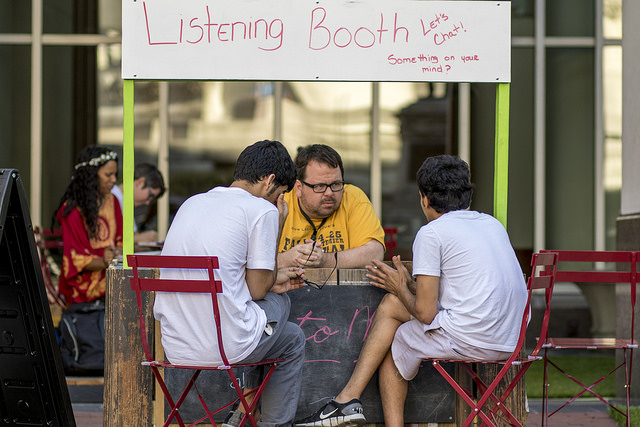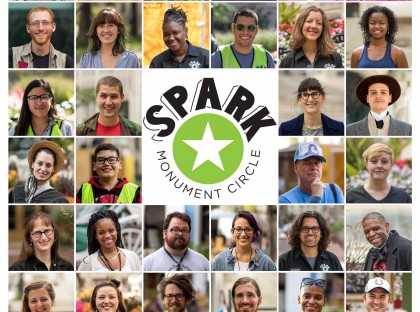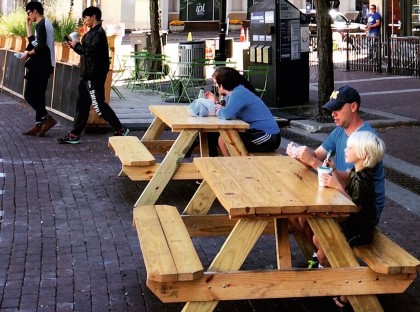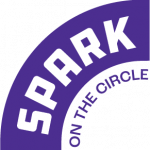by Stephen Giles, Spark listener
“Mark Twain said, ‘If we were meant to talk more than listen, we would have two mouths and one ear.’” This was what a passerby told me on my second day at the Listening Booth.
When I was asked to be a listener at the Listening Booth — a social practice art project offered at Spark Monument Circle in which a receptive person seated at a desk offers to listen to anyone who chooses to take a seat — I was intrigued and thought that this might be a chance to put my previous interest in the priesthood to good use.
Listening, really listening, requires effort. Though I tend to remain mostly silent, I find that using body language to express myself to the speaker was essential. People need to know that they’re being listened to without interruption. It may sound tricky, but anyone can and should do it. Eye contact is a must. I move my head and shoulders to react to what is being said to me. The trickiest part is to refrain from making facial expressions that would suggest judgement on my part. When a person wants to be listened to, s/he doesn’t want unsolicited judgements, advice or opinions.
I discovered that it wasn’t difficult to refrain from making revealing facial expressions once I got it into my own head that I wasn’t waiting for my turn to speak. Most of the time when we appear to be listening to each other, we’re just waiting for our turn to talk. By removing that desire from my mind and focusing on active listening, my facial expresses follow suit. I am able to silently and subconsciously communicate to the speaker that I am interested in what s/he is saying.
Speakers ask me for advice or my opinions on things like politics, religion, and the wisdom of the speaker’s life decisions. I commit myself to holding back my own opinions so as not to upset the delicate balance of this sudden listener-speaker relationship.
This is where my philosophy degree comes in handy. In The Dialogues of Plato, people would challenge Socrates and insist on his thoughts. But Socrates would not make statements – he would question the speaker on the subject at hand. When asked for my opinion or advice in the Listening Booth, I just ask questions back to the speaker. This gives speakers a chance to re-examine their own minds free of the cloudiness of the opinions of others, and it clarifies my understanding of their expressions.
The Listening Booth experience has been rewarding and moving. Some speakers are brought to tears. Others vent their anger. But everyone leaves feeling better than they did before they sat down across from a stranger who was willing to give them full attention.
Stephen currently listens at Spark Mondays and Tuesdays from 5-7 p.m. There’s no charge. Watch Spark social media for schedule updates and additional opportunities.






